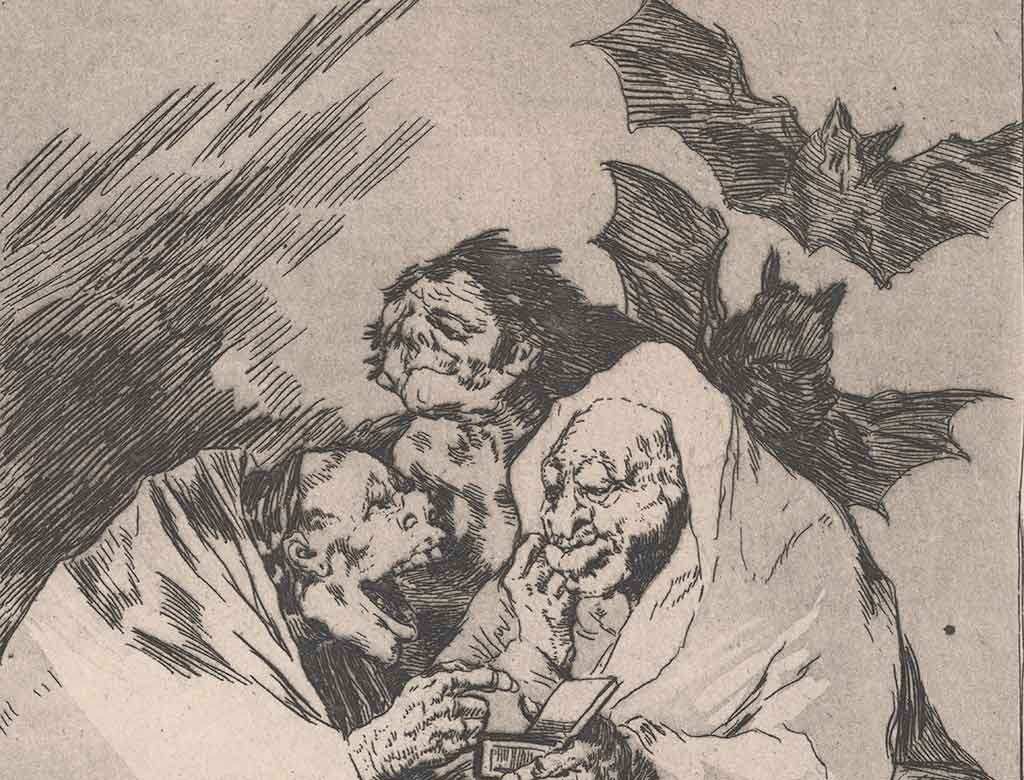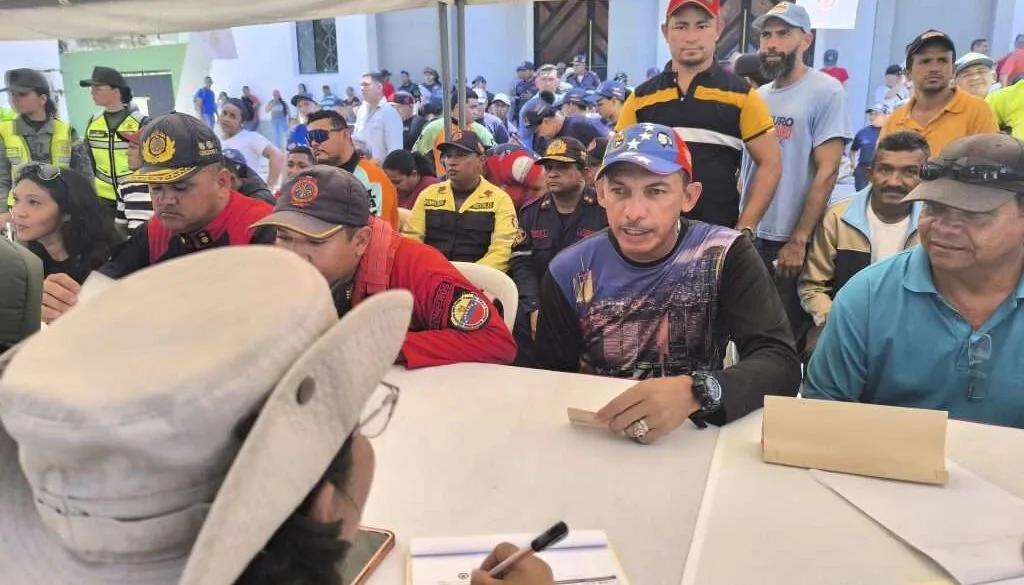Soy un experto en genocidio. Lo sé cuando lo veo.
(traducción libre de ensartaos)
Por Omer Bartov
El Dr. Bartov es profesor de estudios sobre el Holocausto y el genocidio en la Universidad de Brown.
Un mes después del ataque de Hamás contra Israel el 7 de octubre de 2023, creía que existían pruebas de que el ejército israelí había cometido crímenes de guerra y, potencialmente, crímenes de lesa humanidad en su contraataque contra Gaza. Sin embargo, contrariamente a las quejas de los críticos más feroces de Israel, las pruebas no me parecían suficientes para calificar de genocidio.
Para mayo de 2024, las Fuerzas de Defensa de Israel (FDI) habían ordenado a cerca de un millón de palestinos que se refugiaban en Rafah —la ciudad más meridional y la última que quedaba relativamente intacta de la Franja de Gaza— que se trasladaran a la zona costera de Mawasi, donde apenas había refugio. El ejército procedió entonces a destruir gran parte de Rafah, una hazaña prácticamente consumada para agosto.
En ese momento, ya no parecía posible negar que el patrón de operaciones de las FDI coincidía con las declaraciones de los líderes israelíes, que denotaban intenciones genocidas, realizadas en los días posteriores al ataque de Hamás. El primer ministro, Benjamín Netanyahu, había prometido que el enemigo pagaría un alto precio por el ataque y que las FDI reducirían a escombros partes de Gaza, donde Hamás operaba, e instó a los residentes de Gaza a abandonar el lugar inmediatamente, ya que operaremos con fuerza en todas partes.
El Sr. Netanyahu instó a sus ciudadanos a recordar «lo que les hizo Amalec», una cita que muchos interpretaron como una referencia a la exigencia de un pasaje bíblico que exige a los israelitas «matar por igual a hombres y mujeres, bebés y lactantes» de su antiguo enemigo. Funcionarios gubernamentales y militares afirmaron que luchaban contra «animales humanos» y, posteriormente, pidieron la «aniquilación total». Nissim Vaturi, vicepresidente del Parlamento, declaró en X que la tarea de Israel debe ser «borrar la Franja de Gaza de la faz de la tierra». Las acciones de Israel solo podían entenderse como la implementación de la intención expresa de convertir la Franja de Gaza en inhabitable para su población palestina. Creo que el objetivo era, y sigue siendo, obligar a la población a abandonar la Franja por completo o, considerando que no tiene adónde ir, debilitar el enclave mediante bombardeos y una grave privación de alimentos, agua potable, saneamiento y asistencia médica, hasta tal punto que a los palestinos de Gaza les resulta imposible mantener o reconstruir su existencia como grupo.
Mi conclusión ineludible ha sido que Israel está cometiendo genocidio contra el pueblo palestino. Habiendo crecido en un hogar sionista, vivido la primera mitad de mi vida en Israel, servido en las Fuerzas de Defensa de Israel como soldado y oficial y dedicado la mayor parte de mi carrera a investigar y escribir sobre crímenes de guerra y el Holocausto, esta fue una conclusión dolorosa de alcanzar, y a la que me resistí todo lo que pude. Pero llevo un cuarto de siglo impartiendo clases sobre genocidio. Puedo reconocer uno cuando lo veo.
Esta no es solo mi conclusión. Un número creciente de expertos en estudios sobre genocidio y derecho internacional ha concluido que las acciones de Israel en Gaza solo pueden definirse como genocidio. Así lo han hecho Francesca Albanese, relatora especial de la ONU para Cisjordania y Gaza, y Amnistía Internacional. Sudáfrica ha presentado una demanda por genocidio contra Israel ante la Corte Internacional de Justicia.
La continua negación de esta designación por parte de Estados, organizaciones internacionales y expertos jurídicos y académicos causará un daño inmenso no solo a la población de Gaza e Israel, sino también al sistema de derecho internacional establecido tras los horrores del Holocausto, diseñado para evitar que tales atrocidades se repitan. Constituye una amenaza para los cimientos mismos del orden moral del que todos dependemos.
***
El delito de genocidio fue definido en 1948 por las Naciones Unidas como la «intención de destruir, total o parcialmente, a un grupo nacional, étnico, racial o religioso, como tal». Por lo tanto, para determinar qué constituye genocidio, debemos establecer la intención y demostrar que se está llevando a cabo. En el caso de Israel, dicha intención ha sido expresada públicamente por numerosos funcionarios y líderes. Pero la intención también puede derivarse de un patrón de operaciones sobre el terreno, patrón que se hizo evidente en mayo de 2024 —y que desde entonces se ha vuelto cada vez más evidente— a medida que las Fuerzas de Defensa de Israel han destruido sistemáticamente la Franja de Gaza.
La mayoría de los estudiosos del genocidio se muestran cautelosos al aplicar este término a acontecimientos contemporáneos, precisamente debido a la tendencia, desde que fue acuñado por el abogado judío-polaco Raphael Lemkin en 1944, a atribuirlo a cualquier caso de masacre o inhumanidad. De hecho, algunos argumentan que esta categorización debería descartarse por completo, ya que a menudo sirve más para expresar indignación que para identificar un crimen en particular.
Sin embargo, como reconoció el Sr. Lemkin, y como posteriormente acordaron las Naciones Unidas, es crucial distinguir el intento de destruir a un grupo específico de personas de otros crímenes de derecho internacional, como los crímenes de guerra y los crímenes de lesa humanidad. Esto se debe a que, mientras que otros crímenes implican la matanza indiscriminada o deliberada de civiles como individuos, el genocidio denota la matanza de personas como miembros de un grupo, con el objetivo de destruir irreparablemente al propio grupo para que nunca pueda reconstituirse como entidad política, social o cultural. Y, como señaló la comunidad internacional al adoptar la convención, todos los Estados signatarios tienen la obligación de prevenir tal intento, hacer todo lo posible por detenerlo mientras ocurre y castigar posteriormente a quienes participaron en este delito, incluso si ocurrió dentro de las fronteras de un Estado soberano.
La designación tiene importantes ramificaciones políticas, jurídicas y morales. Las naciones, políticos y militares sospechosos, acusados o declarados culpables de genocidio son considerados inhumanos y pueden comprometer o perder su derecho a seguir siendo miembros de la comunidad internacional. Una constatación de la Corte Internacional de Justicia de que un Estado en particular está involucrado en genocidio, especialmente si es aplicada por el Consejo de Seguridad de la ONU, puede dar lugar a severas sanciones.
Los políticos o generales acusados o declarados culpables de genocidio u otras infracciones del derecho internacional humanitario por la Corte Penal Internacional pueden ser arrestados fuera de su país. Y una sociedad que consiente y es cómplice del genocidio, independientemente de la postura de sus ciudadanos, llevará esta marca de Caín mucho después de que se extingan las llamas del odio y la violencia.
***
Israel ha negado todas las acusaciones de crímenes de guerra, crímenes de lesa humanidad y genocidio. Las FDI afirma que investiga denuncias de delitos, aunque rara vez ha hecho públicos sus hallazgos, y cuando se reconocen infracciones de disciplina o protocolo, generalmente ha impuesto leves reprimendas a su personal. Los líderes militares y políticos israelíes describen repetidamente a las FDI como actuando legalmente, afirman que emiten advertencias a la población civil para que evacue los lugares a punto de ser atacados y culpan a Hamás de utilizar a civiles como escudos humanos.
De hecho, la destrucción sistemática en Gaza no solo de viviendas, sino también de otras infraestructuras (edificios gubernamentales, hospitales, universidades, escuelas, mezquitas, sitios de patrimonio cultural, plantas de tratamiento de agua, zonas agrícolas y parques) refleja una política destinada a hacer muy improbable la reactivación de la vida palestina en el territorio.
Según una investigación reciente de Haaretz, se estima que 174.000 edificios han sido destruidos o dañados, lo que representa hasta el 70 % de todas las estructuras de la Franja. Hasta el momento, más de 58.000 personas han muerto, según las autoridades sanitarias de Gaza, incluyendo a más de 17.000 niños, que representan casi un tercio del total de fallecidos. Más de 870 de estos niños tenían menos de un año.
Más de 2.000 familias han sido aniquiladas, según las autoridades sanitarias. Además, 5.600 familias cuentan ahora con un solo superviviente. Se cree que al menos 10.000 personas siguen enterradas bajo las ruinas de sus hogares. Más de 138.000 han resultado heridas y mutiladas.
Gaza tiene ahora la triste distinción de tener el mayor número de niños amputados per cápita del mundo. Una generación entera de niños, sometida a continuos ataques militares, pérdida de padres y desnutrición crónica, sufrirá graves repercusiones físicas y mentales de por vida. Un número incalculable de miles de personas con enfermedades crónicas han tenido escaso acceso a la atención hospitalaria.
El horror de lo que ha estado sucediendo en Gaza todavía es descrito por la mayoría de los observadores como guerra. Pero este término es inapropiado. Durante el último año, las Fuerzas de Defensa de Israel (FDI) no han combatido a un cuerpo militar organizado. La versión de Hamás que planeó y llevó a cabo los ataques del 7 de octubre ha sido destruida, aunque el grupo debilitado continúa combatiendo a las fuerzas israelíes y mantiene el control de la población en zonas que no están bajo el control del Ejército israelí.
Hoy en día, las FDI se dedican principalmente a una operación de demolición y limpieza étnica. Así describió en noviembre el exjefe de Estado Mayor y ministro de Defensa del Sr. Netanyahu, el intransigente Moshe Yaalon, en el canal israelí Democrat TV y en artículos y entrevistas posteriores, el intento de despoblar el norte de Gaza.
El 19 de enero, bajo la presión de Donald Trump, quien estaba a un día de asumir la presidencia, entró en vigor un alto el fuego, lo que facilitó el intercambio de rehenes en Gaza por prisioneros palestinos en Israel. Sin embargo, tras la ruptura del alto el fuego por parte de Israel el 18 de marzo, las Fuerzas de Defensa de Israel (FDI) han estado ejecutando un plan ampliamente difundido para concentrar a toda la población gazatí en una cuarta parte del territorio, en tres zonas: la ciudad de Gaza, los campos de refugiados centrales y la costa de Mawasi, en el extremo suroeste de la Franja.
Utilizando un gran número de excavadoras y enormes bombas aéreas suministradas por Estados Unidos, el ejército parece estar intentando demoler todas las estructuras restantes y establecer el control sobre las otras tres cuartas partes del territorio.
Esto también se ve facilitado por un plan que proporciona, de forma intermitente, suministros limitados de ayuda en unos pocos puntos de distribución custodiados por el ejército israelí, atrayendo a la gente hacia el sur. Muchos gazatíes mueren en un intento desesperado por obtener alimentos, y la crisis de hambruna se agrava. El 7 de julio, el ministro de Defensa, Israel Katz, anunció que las Fuerzas de Defensa de Israel (FDI) construirían una «ciudad humanitaria» sobre las ruinas de Rafah para albergar inicialmente a 600.000 palestinos de la zona de Mawasi, quienes serían abastecidos por organismos internacionales y no se les permitiría salir.
***
Algunos podrían describir esta campaña como limpieza étnica, no como genocidio. Pero existe un vínculo entre los crímenes. Cuando un grupo étnico no tiene adónde ir y se ve constantemente desplazado de una supuesta zona segura a otra, bombardeado sin cesar y privado de alimentos, la limpieza étnica puede convertirse en genocidio.
Este fue el caso de varios genocidios conocidos del siglo XX, como el de los herero y los nama en el África Sudoccidental Alemana, hoy Namibia, que comenzó en 1904; el de los armenios en la Primera Guerra Mundial; e incluso el del Holocausto, que comenzó con el intento alemán de expulsar a los judíos y culminó con su asesinato.
Hasta el día de hoy, solo unos pocos estudiosos del Holocausto, y ninguna institución dedicada a investigarlo y conmemorarlo, ha advertido de que Israel podría ser acusado de crímenes de guerra, crímenes de lesa humanidad, limpieza étnica o genocidio. Este silencio ha convertido en una burla el lema «Nunca más», transformando su significado de una afirmación de resistencia a la inhumanidad dondequiera que se perpetre a una excusa, una disculpa, incluso una carta blanca para destruir a otros invocando el propio victimismo pasado.
Este es otro de los muchos costos incalculables de la catástrofe actual. Mientras Israel intenta literalmente aniquilar la existencia palestina en Gaza y ejerce una violencia creciente contra los palestinos en Cisjordania, el crédito moral e histórico del que se ha valido el Estado judío hasta ahora se está agotando.
Israel, creado tras el Holocausto como respuesta al genocidio nazi de los judíos, siempre ha insistido en que cualquier amenaza a su seguridad debe considerarse como una posible causa de otro Auschwitz. Esto le da a Israel la licencia para retratar como nazis a quienes percibe como sus enemigos, un término utilizado repetidamente por figuras de los medios israelíes para describir a Hamás y, por extensión, a todos los gazatíes, basándose en la afirmación popular de que ninguno de ellos es «desvinculado», ni siquiera los bebés, que crecerían para convertirse en militantes.
Este no es un fenómeno nuevo. Ya durante la invasión israelí del Líbano en 1982, el primer ministro Menachem Begin comparó a Yasir Arafat, entonces refugiado en Beirut, con Adolf Hitler en su búnker de Berlín. Esta vez, la analogía se utiliza en relación con una política destinada a desarraigar y expulsar a toda la población de Gaza.
Las escenas diarias de horror en Gaza, de las que el público israelí se protege gracias a la autocensura de sus propios medios de comunicación, revelan las mentiras de la propaganda israelí, que afirma que se trata de una guerra defensiva contra un enemigo de corte nazi. Uno se estremece cuando los portavoces israelíes pronuncian sin pudor el eslogan hueco de que las FDI son el «ejército más moral del mundo».
Algunos países europeos, como Francia, Gran Bretaña y Alemania, así como Canadá, han protestado débilmente contra las acciones israelíes, especialmente desde que este rompió el alto el fuego en marzo. Sin embargo, no han suspendido los envíos de armas ni han tomado medidas económicas o políticas concretas y significativas que puedan disuadir al gobierno de Netanyahu.
Durante un tiempo, el gobierno de Estados Unidos pareció haber perdido interés en Gaza. El presidente Trump anunció inicialmente en febrero que Estados Unidos tomaría el control de Gaza, prometiendo convertirla en «la Riviera de Oriente Medio», para luego permitir que Israel continuara con la destrucción de la Franja y centrar su atención en Irán. Por el momento, solo cabe esperar que Trump presione de nuevo a un reticente Netanyahu para que al menos alcance un nuevo alto el fuego y ponga fin a la matanza incesante.
***
¿Cómo se verá afectado el futuro de Israel por la inevitable demolición de su incuestionable moralidad, derivada de su nacimiento sobre las cenizas del Holocausto?
El liderazgo político israelí y su ciudadanía tendrán que decidir. Parece haber poca presión interna para el urgente cambio de paradigma: el reconocimiento de que no hay solución a este conflicto más que un acuerdo entre israelíes y palestinos para compartir la tierra bajo los parámetros que ambas partes acuerden, ya sean dos estados, un solo estado o una confederación. También parece improbable una fuerte presión externa por parte de los aliados del país. Me preocupa profundamente que Israel persista en su desastroso rumbo, transformándose, quizás irreversiblemente, en un estado de apartheid autoritario en toda regla. Este tipo de estados, como nos ha enseñado la historia, no perduran.
Surge otra pregunta: ¿Qué consecuencias tendrá el cambio moral de Israel para la cultura de conmemoración del Holocausto y las políticas de memoria, educación y erudición, cuando tantos de sus líderes intelectuales y administrativos se han negado hasta ahora a asumir su responsabilidad de denunciar la inhumanidad y el genocidio dondequiera que ocurran?
Quienes participan en la cultura mundial de conmemoración y recuerdo construida en torno al Holocausto tendrán que afrontar un ajuste de cuentas moral. La comunidad más amplia de estudiosos del genocidio —aquellos que estudian el genocidio comparativo o cualquiera de los muchos otros genocidios que han empañado la historia de la humanidad— se acerca cada vez más a un consenso sobre la descripción de los sucesos en Gaza como un genocidio.
En noviembre, poco más de un año después del inicio de la guerra, el experto israelí en genocidio Shmuel Lederman se unió al creciente coro de opiniones que afirmaban que Israel estaba involucrado en acciones genocidas. El abogado internacional canadiense William Schabas llegó a la misma conclusión el año pasado y recientemente describió la campaña militar de Israel en Gaza como un genocidio absoluto.
Otros expertos en genocidio, como Melanie O’Brien, presidenta de la Asociación Internacional de Académicos del Genocidio, y el especialista británico Martin Shaw (quien también afirmó que el ataque de Hamás fue genocida), han llegado a la misma conclusión. Por otro lado, el académico australiano A. Dirk Moses, de la Universidad de la Ciudad de Nueva York, describió estos sucesos en la publicación holandesa NRC como una mezcla de lógica genocida y militar. En el mismo artículo, Uğur Ümit Üngör, profesor del Instituto NIOD para Estudios sobre la Guerra, el Holocausto y el Genocidio, con sede en Ámsterdam, afirmó que probablemente haya académicos que aún no creen que se trate de genocidio, pero «no los conozco».
La mayoría de los académicos del Holocausto que conozco no comparten, o al menos no expresan públicamente, esta opinión. Con algunas excepciones notables, como el israelí Raz Segal, director del programa de estudios sobre el Holocausto y el genocidio en la Universidad de Stockton en Nueva Jersey, y los historiadores Amos Goldberg y Daniel Blatman de la Universidad Hebrea de Jerusalén, la mayoría de los académicos dedicados a la historia del genocidio nazi de los judíos han mantenido un silencio notable, mientras que algunos han negado abiertamente los crímenes de Israel en Gaza o han acusado a sus colegas más críticos de discurso incendiario, exageración desmedida, envenenamiento de pozos y antisemitismo.
En diciembre, el experto en Holocausto Norman J.W. Goda opinó que «acusaciones de genocidio como esta se han utilizado durante mucho tiempo como tapadera para cuestionar la legitimidad de Israel en general», expresando su preocupación de que «han devaluado la gravedad de la palabra genocidio». Esta “difamación genocida”, como la describió el Dr. Goda en un ensayo, “utiliza diversos tropos antisemitas”, incluyendo “la vinculación de la acusación de genocidio con el asesinato deliberado de niños, cuyas imágenes son omnipresentes en ONG, redes sociales y otras plataformas que acusan a Israel de genocidio”.
En otras palabras, mostrar imágenes de niños palestinos destrozados por bombas estadounidenses lanzadas por pilotos israelíes es, desde esta perspectiva, un acto antisemita.
Recientemente, el Dr. Goda y un respetado historiador europeo, Jeffrey Herf, escribieron en The Washington Post que “la acusación de genocidio lanzada contra Israel se nutre de profundos temores y odios” presentes en “interpretaciones radicales tanto del cristianismo como del islam”. “Ha trasladado el oprobio de los judíos como grupo religioso/étnico al Estado de Israel, al que describe como inherentemente malvado”.
***
¿Cuáles son las ramificaciones de esta división entre los estudiosos del genocidio y los historiadores del Holocausto? No se trata de una simple disputa académica. La cultura de la memoria creada en las últimas décadas en torno al Holocausto abarca mucho más que el genocidio de los judíos. Ha llegado a desempeñar un papel crucial en la política, la educación y la identidad.
Los museos dedicados al Holocausto han servido de modelo para la representación de otros genocidios en todo el mundo. La insistencia en que las lecciones del Holocausto exigen la promoción de la tolerancia, la diversidad, el antirracismo y el apoyo a los migrantes y refugiados, por no mencionar los derechos humanos y el derecho internacional humanitario, se basa en la comprensión de las implicaciones universales de este crimen en el corazón de la civilización occidental en la cúspide de la modernidad.
Desacreditar a los investigadores del genocidio que tachan de antisemita el genocidio israelí en Gaza amenaza con erosionar los cimientos de los estudios sobre el genocidio: la necesidad constante de definir, prevenir, castigar y reconstruir la historia del genocidio. Sugerir que este esfuerzo está motivado, en cambio, por intereses y sentimientos malignos —que está impulsado por el mismo odio y prejuicio que fue la raíz del Holocausto— no solo es moralmente escandaloso, sino que también abre la puerta a una política de negacionismo e impunidad.
Del mismo modo, cuando quienes han dedicado sus carreras a la enseñanza y conmemoración del Holocausto insisten en ignorar o negar las acciones genocidas de Israel en Gaza, amenazan con socavar todo lo que la investigación y la conmemoración del Holocausto han defendido en las últimas décadas. Es decir, la dignidad de todo ser humano, el respeto al estado de derecho y la urgente necesidad de no permitir nunca que la inhumanidad se apodere de los corazones de las personas y dirija las acciones de las naciones en nombre de la seguridad, el interés nacional y la pura venganza.
Lo que temo es que, tras el genocidio de Gaza, ya no sea posible seguir enseñando e investigando el Holocausto como antes. Debido a que el Estado de Israel y sus defensores han invocado el Holocausto con tanta insistencia como encubrimiento de los crímenes de las Fuerzas Armadas de Israel (FDI), su estudio y conmemoración podrían perder su pretensión de justicia universal y replegarse en el mismo gueto étnico en el que se originó al final de la Segunda Guerra Mundial: como una preocupación marginalizada de los restos de un pueblo marginado, un acontecimiento étnicamente específico, antes de que, décadas después, encontrara su legítimo lugar como lección y advertencia para toda la humanidad.
Igualmente preocupante es la perspectiva de que el estudio del genocidio en su conjunto no supere las acusaciones de antisemitismo, dejándonos sin la crucial comunidad de académicos y juristas internacionales que nos ayude a contrarrestar la situación en un momento en que el auge de la intolerancia, el odio racial, el populismo y el autoritarismo amenaza los valores que fueron la base de estos esfuerzos académicos, culturales y políticos del siglo XX.
Quizás la única luz al final de este oscuro túnel sea la posibilidad de que una nueva generación de israelíes afronte su futuro sin refugiarse en la sombra del Holocausto, aun cuando tengan que soportar la mancha del genocidio en Gaza perpetrado en su nombre. Israel tendrá que aprender a vivir sin recurrir al Holocausto como justificación de la inhumanidad. Esto, a pesar de todo el horrible sufrimiento que presenciamos actualmente, es valioso y, a la larga, podría ayudar a Israel a afrontar el futuro de una manera más sana, más racional y menos temerosa y violenta.
Esto no compensará en absoluto la asombrosa cantidad de muertes y sufrimiento de los palestinos. Pero un Israel liberado de la abrumadora carga del Holocausto podría finalmente aceptar la ineludible necesidad de que sus siete millones de ciudadanos judíos compartan la tierra con los siete millones de palestinos que viven en Israel, Gaza y Cisjordania en paz, igualdad y dignidad. Ese será el único ajuste de cuentas justo.
Fuente original:
I’m a Genocide Scholar. I Know It When I See It.
By Omer Bartov
Dr. Bartov is a professor of Holocaust and genocide studies at Brown University.
A month after the Hamas attack on Israel on Oct. 7, 2023, I believed there was evidence that the Israeli military had committed war crimes and potentially crimes against humanity in its counterattack on Gaza. But contrary to the cries of Israel’s fiercest critics, the evidence did not seem to me to rise to the crime of genocide.
By May 2024, the Israel Defense Forces had ordered about one million Palestinians sheltering in Rafah — the southernmost and last remaining relatively undamaged city of the Gaza Strip — to move to the beach area of the Mawasi, where there was little to no shelter. The army then proceeded to destroy much of Rafah, a feat mostly accomplished by August.
At that point it appeared no longer possible to deny that the pattern of I.D.F. operations was consistent with the statements denoting genocidal intent made by Israeli leaders in the days after the Hamas attack. Prime Minister Benjamin Netanyahu had promised that the enemy would pay a “huge price” for the attack and that the I.D.F. would turn parts of Gaza, where Hamas was operating, “into rubble,” and he called on “the residents of Gaza” to “leave now because we will operate forcefully everywhere.”
Mr. Netanyahu had urged his citizens to remember “what Amalek did to you,” a quote many interpreted as a reference to the demand in a biblical passage calling for the Israelites to “kill alike men and women, infants and sucklings” of their ancient enemy. Government and military officials said they were fighting “human animals” and, later, called for “total annihilation.” Nissim Vaturi, the deputy speaker of Parliament, said on X that Israel’s task must be “erasing the Gaza Strip from the face of the earth.” Israel’s actions could be understood only as the implementation of the expressed intent to make the Gaza Strip uninhabitable for its Palestinian population. I believe the goal was — and remains today — to force the population to leave the Strip altogether or, considering that it has nowhere to go, to debilitate the enclave through bombings and severe deprivation of food, clean water, sanitation and medical aid to such an extent that it is impossible for Palestinians in Gaza to maintain or reconstitute their existence as a group.
My inescapable conclusion has become that Israel is committing genocide against the Palestinian people. Having grown up in a Zionist home, lived the first half of my life in Israel, served in the I.D.F. as a soldier and officer and spent most of my career researching and writing on war crimes and the Holocaust, this was a painful conclusion to reach, and one that I resisted as long as I could. But I have been teaching classes on genocide for a quarter of a century. I can recognize one when I see one.
This is not just my conclusion. A growing number of experts in genocide studies and international law have concluded that Israel’s actions in Gaza can only be defined as genocide. So has Francesca Albanese, the U.N. special rapporteur for the West Bank and Gaza, and Amnesty International. South Africa has brought a genocide case against Israel at the International Court of Justice.
The continued denial of this designation by states, international organizations and legal and scholarly experts will cause unmitigated damage not just to the people of Gaza and Israel but also to the system of international law established in the wake of the horrors of the Holocaust, designed to prevent such atrocities from happening ever again. It is a threat to the very foundations of the moral order on which we all depend.
***
The crime of genocide was defined in 1948 by the United Nations as the “intent to destroy, in whole or in part, a national, ethnical, racial or religious group, as such.” In determining what constitutes genocide, therefore, we must both establish intent and show that it is being carried out. In Israel’s case, that intent has been publicly expressed by numerous officials and leaders. But intent can also be derived from a pattern of operations on the ground, and this pattern became clear by May 2024 — and has since become ever clearer — as the I.D.F. has systematically destroyed the Gaza Strip.
Most genocide scholars are cautious about applying this term to contemporary events, precisely because of the tendency, since it was coined by the Jewish-Polish lawyer Raphael Lemkin in 1944, to attribute it to any case of massacre or inhumanity. Indeed, some argue that the categorization should be entirely discarded, because it often serves more to express outrage than to identify a particular crime.
Yet as Mr. Lemkin recognized, and as the United Nations later agreed, it is crucial to be able to distinguish the attempt to destroy a particular group of people from other crimes under international law, such as war crimes and crimes against humanity. This is because, while other crimes entail indiscriminate or deliberate killing of civilians as individuals, genocide denotes the killing of people as members of a group, geared at irreparably destroying the group itself so that it would never be able to reconstitute itself as a political, social or cultural entity. And, as the international community signaled by adopting the convention, it is incumbent upon all signatory states to prevent such an attempt, to do all they can to stop it while it is occurring and to subsequently punish those who were engaged in this crime of crimes — even if it occurred within the borders of a sovereign state.
The designation has major political, legal and moral ramifications. Nations, politicians and military personnel suspected of, indicted on a charge of or found guilty of genocide are seen as beyond the pale of humanity and may compromise or lose their right to remain members of the international community. A finding by the International Court of Justice that a particular state is engaged in genocide, especially if enforced by the U.N. Security Council, can lead to severe sanctions.
Politicians or generals indicted on a charge of or found guilty of genocide or other breaches of international humanitarian law by the International Criminal Court can face arrest outside of their country. And a society that condones and is complicit in genocide, whatever the stand of its individual citizens may be, will carry this mark of Cain long after the fires of hatred and violence are put out.
***
Israel has denied all allegations of war crimes, crimes against humanity and genocide. The I.D.F. says it investigates reports of crimes, although it has rarely made its findings public, and when breaches of discipline or protocol are acknowledged, it has generally meted light reprimands to its personnel. Israeli military and political leaders repeatedly describe the I.D.F. as acting lawfully, say they issue warnings to civilian populations to evacuate sites about to be attacked and blame Hamas for using civilians as human shields.
In fact, the systematic destruction in Gaza not only of housing but also of other infrastructure — government buildings, hospitals, universities, schools, mosques, cultural heritage sites, water treatment plants, agriculture areas, and parks — reflects a policy aimed at making the revival of Palestinian life in the territory highly unlikely.
According to a recent investigation by Haaretz, an estimated 174,000 buildings have been destroyed or damaged, accounting for up to 70 percent of all structures in the Strip. So far, more than 58,000 people have been killed, according to Gazan health authorities, including more than 17,000 children, who make up nearly a third of the total fatality count. More than 870 of those children were less than a year old.
More than 2,000 families have been wiped out, the health authorities said. In addition, 5,600 families now count only one survivor. At least 10,000 people are believed to still be buried under the ruins of their homes. More than 138,000 have been wounded and maimed.
Gaza now has the grim distinction of having the highest number of amputee children per capita in the world. An entire generation of children subjected to ongoing military attacks, loss of parents and long-term malnutrition will suffer severe physical and mental repercussions for the rest of their lives. Untold additional thousands of chronically ill persons have had little access to hospital care.
The horror of what has been happening in Gaza is still described by most observers as war. But this is a misnomer. For the last year, the I.D.F. has not been fighting an organized military body. The version of Hamas that planned and carried out the attacks on Oct. 7 has been destroyed, though the weakened group continues to fight Israeli forces and retains control over the population in areas not held by the Israeli Army.
Today the I.D.F. is primarily engaged in an operation of demolition and ethnic cleansing. That’s how Mr. Netanyahu’s own former chief of staff and minister of defense, the hard-liner Moshe Yaalon, in November described on Israel’s Democrat TV and in subsequent articles and interviews the attempt to clear northern Gaza of its population.
On Jan. 19, under pressure from Donald Trump, who was a day away from resuming the presidency, a cease-fire went into effect, facilitating the exchange of hostages in Gaza for Palestinian prisoners in Israel. But after Israel’s breaking of the cease-fire on March 18, the I.D.F. has been executing a well-publicized plan to concentrate the entire Gazan population in a quarter of the territory in three zones: Gaza City, the central refugee camps and the Mawasi coastline in the Strip’s southwestern edge.
Using large numbers of bulldozers and huge aerial bombs supplied by the United States, the military appears to be trying to demolish every remaining structure and establish control over the other three-quarters of the territory.
This is also being facilitated by a plan that provides — intermittently — limited aid supplies at a few distribution points guarded by the Israeli military, drawing people to the south. Many Gazans are killed in a desperate attempt to obtain food, and the starvation crisis deepens. On July 7, Defense Minister Israel Katz said the I.D.F. would build a “humanitarian city” over the ruins of Rafah to initially accommodate 600,000 Palestinians from the Mawasi area, who would be provisioned by international bodies and not allowed to leave.
***
Some might describe this campaign as ethnic cleansing, not genocide. But there is a link between the crimes. When an ethnic group has nowhere to go and is constantly displaced from one so-called safe zone to another, relentlessly bombed and starved, ethnic cleansing can morph into genocide.
This was the case in several well-known genocides of the 20th century, such as that of the Herero and Nama in German South West Africa, now Namibia, that began in 1904; the Armenians in World War I; and, indeed, even in the Holocaust, which began with the German attempt to expel the Jews and ended up with their murder.
To this day, only a few scholars of the Holocaust, and no institution dedicated to researching and commemorating it, has issued a warning that Israel could be accused of carrying out war crimes, crimes against humanity, ethnic cleansing or genocide. This silence has made a mockery of the slogan “Never again,” transforming its meaning from an assertion of resistance to inhumanity wherever it is perpetrated to an excuse, an apology, indeed, even a carte blanche for destroying others by invoking one’s own past victimhood.
This is another of the many incalculable costs of the current catastrophe. As Israel is literally trying to wipe out Palestinian existence in Gaza and is exercising increasing violence against Palestinians in the West Bank, the moral and historical credit which the Jewish State has drawn on until now is running out.
Israel, created in the wake of the Holocaust as the answer to the Nazi genocide of the Jews, has always insisted that any threat to its security must be seen as potentially leading to another Auschwitz. This provides Israel with license to portray those it perceives as its enemies as Nazis — a term used repeatedly by Israeli media figures to depict Hamas and, by extension, all Gazans, based on the popular assertion that none of them are “uninvolved,” not even the infants, who would grow up to be militants.
This is not a new phenomenon. As early as Israel’s invasion of Lebanon in 1982, Prime Minister Menachem Begin compared Yasir Arafat, then hunkered down in Beirut, to Adolf Hitler in his Berlin bunker. This time, the analogy is being used in connection with a policy aimed at uprooting and removing the entire population of Gaza.
The daily scenes of horror in Gaza, from which the Israeli public is shielded by its own media’s self-censorship, expose the lies of Israeli propaganda that this is a war of defense against a Nazi-like enemy. One shudders when Israeli spokespeople shamelessly utter the hollow slogan of the I.D.F. being the “most moral army in the world.”
Some European nations, such as France, Britain and Germany, as well as Canada, have feebly protested Israeli actions, especially since it breached the cease-fire in March. But they have neither suspended arms shipments nor taken many concrete and meaningful economic or political steps that might deter Mr. Netanyahu’s government.
For a while, the United States government seemed to have lost interest in Gaza, with President Trump initially announcing in February that the United States would take over Gaza, promising to turn it into “the Riviera of the Middle East,” and then letting Israel get on with the Strip’s destruction and turning his attention to Iran. At the moment, one can only hope that Mr. Trump will again pressure a reluctant Mr. Netanyahu to at least reach a new cease-fire and put an end to the relentless killing.
***
How will Israel’s future be affected by the inevitable demolition of its incontestable morality, derived from its birth in the ashes of the Holocaust?
Israel’s political leadership and its citizenry will have to decide. There seems to be little domestic pressure for the urgently needed change of paradigm: the recognition that there is no solution to this conflict other than an Israeli-Palestinian agreement to share the land under whatever parameters the two sides agree on, be it two states, one state or a confederation. Robust external pressure from the country’s allies also appears unlikely. I am deeply worried that Israel will persist on its disastrous course, remaking itself, perhaps irreversibly, into a full-blown authoritarian apartheid state. Such states, as history has taught us, do not last.
Another question arises: What consequences will Israel’s moral reversal have for the culture of Holocaust commemoration, and the politics of memory, education and scholarship, when so many of its intellectual and administrative leaders have up to now refused to face up to their responsibility to denounce inhumanity and genocide wherever they occur?
Those engaged in the worldwide culture of commemoration and remembrance built around the Holocaust will have to confront a moral reckoning. The wider community of genocide scholars — those engaged in the study of comparative genocide or of any one of the many other genocides that have marred human history — is now edging ever closer toward a consensus over describing events in Gaza as a genocide.
In November, a little more than a year into the war, the Israeli genocide scholar Shmuel Lederman joined the growing chorus of opinion that Israel was engaged in genocidal actions. The Canadian international lawyer William Schabas came to the same conclusion last year and has recently described Israel’s military campaign in Gaza as “absolutely” a genocide.
Other genocide experts, such as Melanie O’Brien, president of the International Association of Genocide Scholars, and the British specialist Martin Shaw (who has also said that the Hamas attack was genocidal), have reached the same conclusion, while the Australian scholar A. Dirk Moses of the City University of New York described these events in the Dutch publication NRC as a “mix of genocidal and military logic.” In the same article, Uğur Ümit Üngör, a professor at the Amsterdam-based NIOD Institute for War, Holocaust and Genocide Studies, said there are probably scholars who still do not think it’s genocide, but “I don’t know them.”
Most Holocaust scholars I know don’t hold, or at least publicly express, this view. With a few notable exceptions, such as the Israeli Raz Segal, program director of Holocaust and genocide studies at Stockton University in New Jersey, and the Hebrew University of Jerusalem historians Amos Goldberg and Daniel Blatman, the majority of academics engaged with the history of the Nazi genocide of the Jews have stayed remarkably silent, while some have openly denied Israel’s crimes in Gaza, or accused their more critical colleagues of incendiary speech, wild exaggeration, well poisoning and antisemitism.
In December the Holocaust scholar Norman J.W. Goda opined that “genocide charges like this have long been used as a fig leaf for broader challenges to Israel’s legitimacy,” expressing his worry that “they have cheapened the gravity of the word genocide itself.” This “genocide libel,” as Dr. Goda referred to it in an essay, “deploys a range of antisemitic tropes,” including “the coupling of the genocide charge with the deliberate killing of children, images of whom are ubiquitous on NGO, social media, and other platforms that charge Israel with genocide.”
In other words, showing images of Palestinian children ripped apart by U.S.-made bombs launched by Israeli pilots is, in this view, an antisemitic act.
Most recently, Dr. Goda and a respected historian of Europe, Jeffrey Herf, wrote in The Washington Post that “the genocide accusation hurled against Israel draws on deep wells of fear and hatred” found in “radical interpretations of both Christianity and Islam.” It “has shifted opprobrium from Jews as a religious/ethnic group to the State of Israel, which it depicts as inherently evil.”
***
What are the ramifications of this rift between genocide scholars and Holocaust historians? This is not merely a squabble within academe. The memory culture created in recent decades around the Holocaust encompasses much more than the genocide of the Jews. It has come to play a crucial role in politics, education and identity.
Museums dedicated to the Holocaust have served as models for representations of other genocides around the world. Insistence that the lessons of the Holocaust demand the promotion of tolerance, diversity, antiracism and support for migrants and refugees, not to mention human rights and international humanitarian law, is rooted in an understanding of the universal implications of this crime in the heart of Western civilization at the peak of modernity.
Discrediting genocide scholars who call out Israel’s genocide in Gaza as antisemitic threatens to erode the foundation of genocide studies: the ongoing need to define, prevent, punish and reconstruct the history of genocide. Suggesting that this endeavor is motivated instead by malign interests and sentiments — that it is driven by the very hatred and prejudice that was at the root of the Holocaust — is not only morally scandalous, it provides an opening for a politics of denialism and impunity as well.
By the same token, when those who have dedicated their careers to teaching and commemorating the Holocaust insist on ignoring or denying Israel’s genocidal actions in Gaza, they threaten to undermine everything that Holocaust scholarship and commemoration have stood for in the past several decades. That is, the dignity of every human being, respect for the rule of law and the urgent need never to let inhumanity take over the hearts of people and steer the actions of nations in the name of security, national interest and sheer vengeance.
What I fear is that in the aftermath of the Gaza genocide, it will no longer be possible to continue teaching and researching the Holocaust in the same manner we did before. Because the Holocaust has been so relentlessly invoked by the State of Israel and its defenders as a cover-up for the crimes of the I.D.F., the study and remembrance of the Holocaust could lose its claim to be concerned with universal justice and retreat into the same ethnic ghetto in which it began its life at the end of World War II — as a marginalized preoccupation by the remnants of a marginalized people, an ethnically specific event, before it succeeded, decades later, to find its rightful place as a lesson and a warning for humanity as a whole.
Just as worrisome is the prospect that the study of genocide as a whole will not survive the accusations of antisemitism, leaving us without the crucial community of scholars and international jurists to stand in the breach at a time when the rise of intolerance, racial hatred, populism and authoritarianism is threatening the values that were at the core of these scholarly, cultural and political endeavors of the 20th century.
Perhaps the only light at the end of this very dark tunnel is the possibility that a new generation of Israelis will face their future without sheltering in the shadow of the Holocaust, even as they will have to bear the stain of the genocide in Gaza perpetrated in their name. Israel will have to learn to live without falling back on the Holocaust as justification for inhumanity. That, despite all the horrific suffering we are currently watching, is a valuable thing, and may, in the long run, help Israel face the future in a healthier, more rational and less fearful and violent manner.
This will do nothing to compensate for the staggering amount of death and suffering of Palestinians. But an Israel liberated from the overwhelming burden of the Holocaust may finally come to terms with the inescapable need for its seven million Jewish citizens to share the land with the seven million Palestinians living in Israel, Gaza and the West Bank in peace, equality and dignity. That will be the only just reckoning.



















